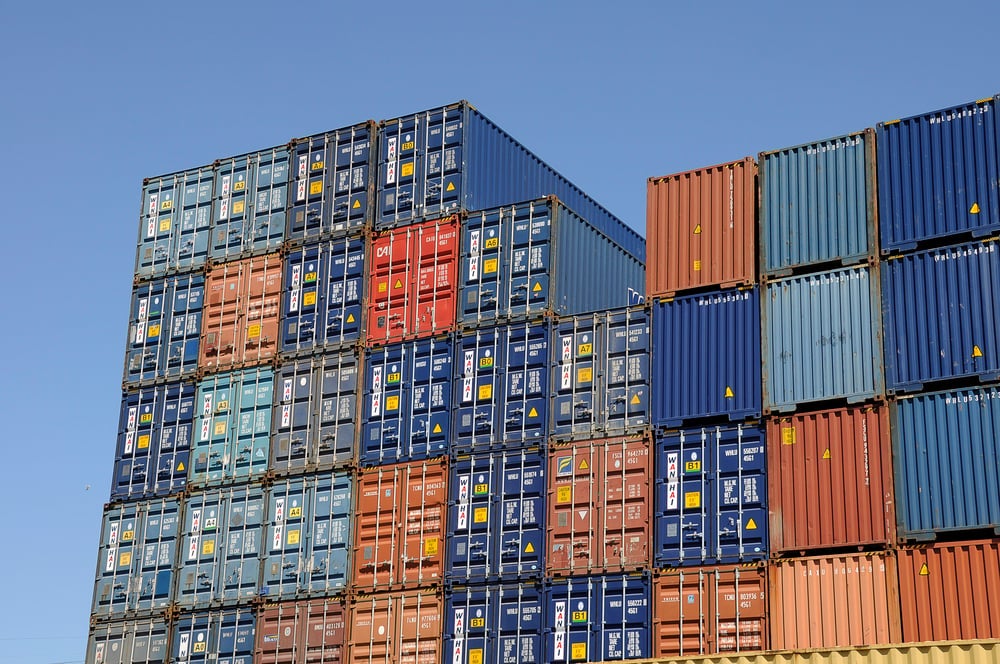Bulk Shippers See Earnings & Revenue Decline Amid Global Slowdown ZIM Integrated Shipping Services soared Wednesday after better-than-expected Q3 results. Meanwhile, Star Bulk Carriers traded lower after hours.
By Kate Stalter
This story originally appeared on MarketBeat

Shares of ZIM Integrated Shipping Services (NYSE: ZIM) soared at the open Wednesday after the company reported better-than-expected third-quarter results.
Meanwhile, industry peer Star Bulk Carriers (NASDAQ: SBLK) was trading lower after hours after the company reported earnings per share of $1.33 on revenue of $364.14 million. Both are decreases from the year-ago quarter.
The shipping industry was a pandemic-era standout, leading other most other sub-industries as recently as six months ago. However, its fortunes are fading fast as economic and societal conditions change.
Growth at numerous companies has slowed markedly since the heady days of pandemic-driven online ordering and supply-chain constraints. It's a truism that one person's problem is an opportunity for someone else, and that was certainly the case for bulk shippers.
Those days are over, though. The industry is receding as recession and higher interest rates results in slower demand globally.
The Shanghai Containerized Freight Index, which tracks ocean freight and spot market surcharges associated with shipping routes, is down from last week. That's been the trend throughout 2022, as shipping volumes decline.
ZIM earned $9.66 per share on revenue of $3.227 billion. That marked a decline on the bottom line, but an increase of 3% on the top line.
Revenue Deceleration
ZIM revenue grew at triple-digit rates throughout 2021 and into early 2022. At this point, the deceleration trend is clear: In the past four quarters, revenue growth rates slowed from 210% to 4%. Earnings growth also slowed from quadruple-digit increases in 2020 and early 2021, to a decline in the most recent quarter.
ZIM has been profitable in each of the past two years, after losing money in 2018 and 2019. For the full year, Wall Street expects the company to report earnings of $39.85 per share, which would mark a year-over-year increase of 3%. In 2023, that's expected to decline a whopping 83% to $6.77 per share.
Even if earnings fall, one attractive aspect for investors has been ZIM's dividend. The company said Wednesday that it would pay a dividend of $2.95 per share on December 7 to shareholders of record as of November 29.
The company acknowledged the industry-wide slowdown. In its earnings release, CEO Eli Glickman said, in a statement, "Driven by macroeconomic and geopolitical uncertainties, the near-term outlook for container shipping has shifted and the normalization in freight rates has begun."
Meanwhile, industry peer Star Bulk Carriers missed analysts' expectations for earnings of $1.42 per share. That marked a decline of 39% on the bottom line. Revenue dropped by 12%.
Star Bulk declared a dividend of $1.20 per share, payable on or around December 12, to all shareholders of record as of November 30. The stock's dividend yield is currently 25.8%.
Small Cap Outperforming
Star Bulk, with a market capitalization of just $2 billion, has been outperforming ZIM in the past 12 months.
Despite recent pullbacks, Star Bulk is up 12.97% year to date. ZIM, in contrast, is down 13.40%.
Star Bulk's year-to-date gain is largely due to a rally between late January and mid-February, when the company notched strong price gains. A gain of more than 16% in May solidified that positive return. Shares pulled back in recent months, but have been holding above a September 29 low of $16.85.
ZIM, meanwhile, is trading at August 2021 levels, although shares are up 14.73% so far this month. If the stock ends November with a gain, it would be the first time since July it's accomplished that feat.
At this juncture, ZIM may be in the midst of a tradeable rally, but Star Bulk may have more correcting to do. In any event, it's often not advisable to put money into an industry that's clearly, and even from its own admission, seeing a global slowdown. There are plenty of other industries with more opportunities at the moment.








